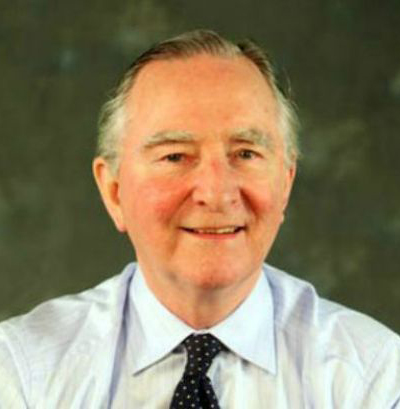-
-
- Council Members
- Role of Council Members
- Council meetings
- Council elections
- Previous election results
- Dr Louise Allum
- Dr Sam Bescoby
- Dr Andrew Clemence
- Dr Tshidi Gardiner
- Dr Reginald Godwin
- Paddy Gordon
- Dr Danielle Greenberg
- Dr Gerard Henry
- Dr Richard Hillman
- Dr Benjamin Kennedy
- Dr Tom Lonsdale
- Dr Darren Partridge
- Martin Peaty
- Alison Price
- Dr Peter Robinson
- Dr Jennifer Simmons
- Dr Sadie Spencer
- Dr Mary Thomas
- William Wilkinson
- Dr Lara Wilson
- Past-Presidents
-
-
-
-
-
- About extra-mural studies (EMS)
- EMS requirements
- Information for vet students
- Information for EMS providers
- Information for vet schools
- Temporary EMS requirements
- Practice by students - regulations
- Health and safety on EMS placements
- EMS contacts and further guidance
- Extra-mural studies fit for the future
-
-
- Code of Professional Conduct for Veterinary Surgeons
- Code of Professional Conduct for Veterinary Nurses
- Contact the Advice Team
- XL Bully dog ban
- 'Under care' - guidance
- Advice on Schedule 3
- Controlled Drugs Guidance – A to Z
- Dealing with Difficult Situations webinar recordings
- FAQs – Common medicines pitfalls
- FAQs – Routine veterinary practice and clinical veterinary research
- FAQs – Advertising of practice names
- GDPR – RCVS information and Q&As
-
- Accrediting veterinary degrees
- Accrediting veterinary nursing qualifications
- Reasonable adjustments for student veterinary nurses
- Health and disability in veterinary nurse education and training
- Reasonable adjustments for students and the UK disability discrimination legislation
- Educational assessment of veterinary nurses
- Roles of key stakeholders in the application of reasonable adjustments
- Examples of reasonable adjustments for vet nurse students
- External review of the RCVS by ENQA
- Requirements for remote and online student assessments
Vet Futures: Does profit-making damage the veterinary profession's reputation?
10 June 2015
In this month's Vet Futures blog a former President of the British Small Animal Veterinary Association and the Veterinary Practice Management Association argues that practices should be more ‘business-minded’ when it comes to managing their resources.
 John Sheridan (pictured), who is now a management and business consultant to the veterinary profession, argues that veterinary practices are over-reliant on generating profit from sales of medicines and that they should be seeking to make more from their professional services.
John Sheridan (pictured), who is now a management and business consultant to the veterinary profession, argues that veterinary practices are over-reliant on generating profit from sales of medicines and that they should be seeking to make more from their professional services.
This is in line with one of the objectives identified during the first Vet Futures Group meeting, run jointly between us and the British Veterinary Association, in January 2015 which said that ‘practices should be less focussed on margins from medicine sales’.
John says: “My experience over the years as a management consultant to the profession indicates that the margin generated by the sales of medicines and other products after allowing for an appropriate share of establishment, overhead and staff costs is modest but certainly not excessive – whilst the margin generated by the sale of professional time and expertise hovers around nil and, in many practices, is negative
He says that, at a time of increasing competition and greater corporatisation, veterinary practices must be viable to thrive and points out that, based on available data, the amount of profit generated by independent practices is poor and declining in contrast to corporate groups.
While some independent practices may be concerned about their reputation and relationship with clients if they charge more for professional services, John argues that, with high trust levels in the profession (as demonstrated in our recent survey), vets should not be afraid of having a greater business focus – something he believes should be encouraged from vet school onwards.
“That reputation is our brand. It has been slowly built over many generations by veterinary surgeons and their practice teams up and down the country, every day of the week, dealing first hand with practical animal welfare challenges and delivering professional, caring and compassionate services for their owners.
“Will it continue? Of course it will – but only if veterinary practices continue to be viable businesses generating the revenue necessary to enable them to thrive, cover all their costs and, when judged appropriate by their owners, to offer professional services on a pro-bono basis for wild animals, stray animals and those belonging to individual owners in need,” adds John.
Overall, he argues that “better business is essential for the delivery of better medicine” as it allows for investment in facilities, equipment and skills.
In relation to John’s blog, this month’s poll asks ‘Can veterinary practice embrace the urgent need for better business skills without damaging its well-earned reputation as a compassionate profession primarily concerned with the welfare of the animals under its care?’
Last month’s poll looked at issues around the growth of palliative and hospice care in the veterinary profession and asked if this should become a standard part of practice. This was based on a blog written by former veterinary surgeon Kath Dyson arguing that additional expertise in end-of-life care could help the profession better provide lifelong care to their animal patients. A slim majority (56%) of the 193 people who took part in the poll argued that hospice care should not become a part of standard practice – 28% said it should, while 16% said they were not sure.
To find out more about the project, read the blog and answer the poll question, please visit the Vet Futures website.